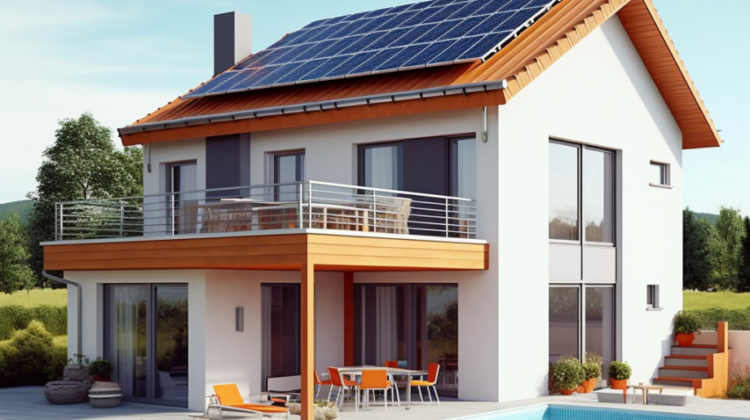
In recent years, solar panels have become an increasingly popular way for homeowners to generate electricity while reducing their carbon footprint. As a result, many homebuyers are now looking for homes equipped with solar panels, and many sellers are installing them to increase the value of their property. However, buying and selling a home with solar panels can be more complicated than buying or selling one without one. In this article, we’ll discuss some critical things to remember if you’re looking to buy or sell a home with solar panels.
Buying a Home with Solar Panels
If you’re in the market for a home with solar panels, there are a few things you should consider. First and foremost, it’s essential to determine whether the solar panels are owned or leased. If the panels are held, the homeowner has purchased them outright and will typically include them in the home sale. If the panels are leased, the homeowner is essentially renting them from a third-party provider, and the lease terms may affect the home’s sale.
It’s also important to consider the age and condition of the solar panels. Solar panels typically have a lifespan of around 25-30 years, so if the panels are nearing the end, you may need to factor in the cost of replacing them shortly.
The magnitude of the solar panel system is another crucial aspect to consider. A more extensive system will typically generate more electricity, but it will also be more expensive to purchase and maintain. You’ll need to determine the size system appropriate for your energy needs and budget.
Selling a Home with Solar Panels
If you’re looking to sell a home with solar panels, there are a few things you can do to maximize the value of your property. First, ensure the solar panels are in good working order. If they generate less electricity than they should, you may need to repair or replace them before putting your home on the market.
It’s also a good idea to gather documentation about the solar panel system, including information about its age, size, and any warranties that may be in place. This information can be valuable to potential buyers and can help demonstrate the value of the solar panel system.
When it comes to pricing your home, you’ll need to factor in the value of the solar panel system. According to recent research by the Lawrence Berkeley National Laboratory, homes equipped with solar panels are sold at an average premium of 4.1% compared to those without. However, the exact value of the solar panel system will depend on various factors, including the size of the system, the age and condition of the panels, and the local market conditions.
It’s also important to consider the terms of any lease agreements you may have in place. If you’ve leased your solar panels, you’ll need to determine whether you’ll transfer the lease to the new owner or buy out the lease and include the cost in the home’s sale price.
Conclusion
Purchasing or selling a home with solar panels may present more challenges than dealing with a property without one. Nonetheless, adequate information and preparation make it feasible to manage the process smoothly. Whether you are the buyer or the seller, it is crucial to consider factors such as the age, magnitude, and state of the solar panel system and any leasing arrangements that may be in effect. By conducting thorough research and seeking the guidance of seasoned experts, you can guarantee that the solar panel system will be a valuable asset that contributes to the overall value of your property.

Leave a Reply